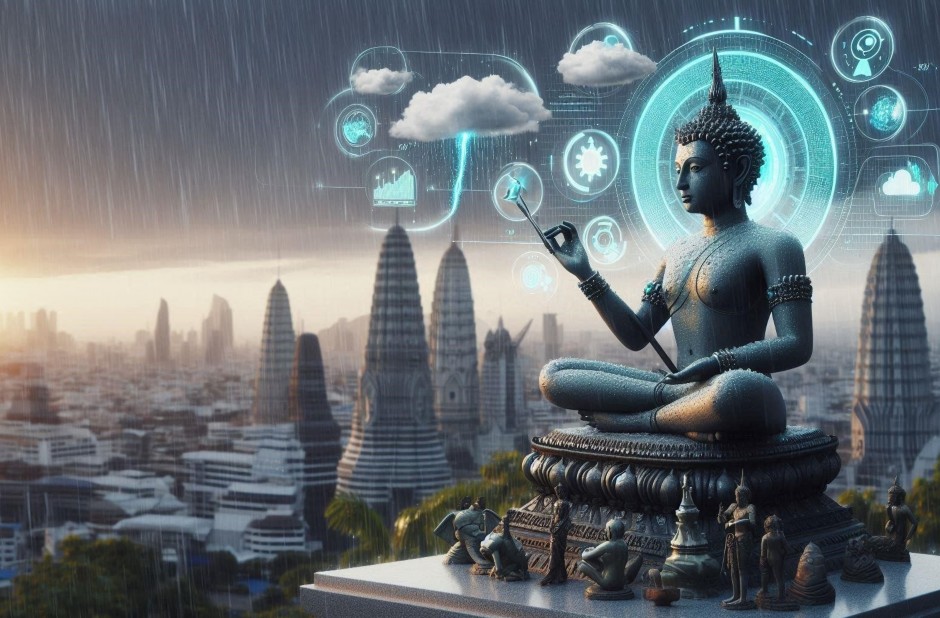In recent years, there has been a significant advancement in the field of Artificial Intelligence (AI) and Augmented Reality (AR). These technologies have become increasingly popular and have the potential to enhance virtual experiences in various fields such as gaming, education, healthcare, and...
Artificial Intelligence Predicted Weather More Accurately Than Meteorologists

The field of meteorology is experiencing a revolutionary transformation as artificial intelligence systems demonstrate superior accuracy in weather prediction compared to traditional forecasting methods. Recent studies have shown that AI-powered models can outperform human meteorologists and conventional numerical weather prediction systems, marking a significant milestone in atmospheric science.
The AI Weather Revolution
Machine learning algorithms have begun to challenge the dominance of traditional weather forecasting models that have been the backbone of meteorology for decades. These AI systems analyze vast amounts of atmospheric data, satellite imagery, and historical weather patterns to generate predictions with unprecedented precision.
Key Advantages of AI Weather Systems
Artificial intelligence brings several transformative capabilities to weather prediction:
- Pattern Recognition: AI can identify complex atmospheric patterns that might escape human observation
- Real-time Processing: Machine learning models process enormous datasets in minutes rather than hours
- Continuous Learning: AI systems improve their accuracy by learning from prediction errors
- Multi-variable Analysis: Simultaneous processing of hundreds of atmospheric variables
Breakthrough Performance Results
Recent comparative studies have demonstrated remarkable improvements in forecast accuracy. AI models have shown up to 25% better performance in predicting temperature variations and 30% improvement in precipitation forecasting compared to traditional methods. These gains are particularly significant for medium-range forecasts spanning 3-7 days ahead.
Specific Areas of AI Excellence
The artificial intelligence advantage is most pronounced in several critical forecasting areas:
- Extreme Weather Events: AI systems demonstrate superior capability in predicting hurricanes, tornadoes, and severe thunderstorms
- Precipitation Timing: More precise predictions of when rain or snow will begin and end
- Temperature Fluctuations: Enhanced accuracy in daily temperature highs and lows
- Regional Microclimates: Better understanding of localized weather variations

The Technology Behind AI Weather Prediction
Modern AI weather systems utilize deep learning neural networks trained on decades of meteorological data. These systems incorporate multiple data sources including satellite observations, ground-based weather stations, ocean buoys, and atmospheric soundings. The integration of big data analytics allows AI to process information at scales impossible for human meteorologists.
Data Integration and Processing
AI weather models excel at combining diverse data streams into coherent predictions. They analyze atmospheric pressure patterns, wind velocity measurements, humidity levels, and temperature gradients simultaneously. This comprehensive approach enables more nuanced and accurate forecasting than traditional single-variable models.
Implications for the Future
The success of AI in weather prediction has far-reaching implications across multiple sectors. Agriculture benefits from more precise planting and harvesting guidance, while aviation gains improved flight safety through better turbulence and storm predictions. Emergency management services can better prepare for natural disasters with enhanced early warning systems.
Challenges and Limitations
Despite impressive performance gains, AI weather prediction faces certain challenges:
- Dependence on high-quality training data
- Difficulty explaining prediction reasoning
- Computational resource requirements
- Need for continuous model updates
Conclusion
The emergence of AI as a superior weather prediction tool represents a paradigm shift in meteorology. While human expertise remains valuable for interpretation and communication, artificial intelligence has proven its capability to process atmospheric data with unprecedented accuracy. This technological advancement promises more reliable weather forecasts, potentially saving lives and improving decision-making across numerous industries that depend on weather information.



